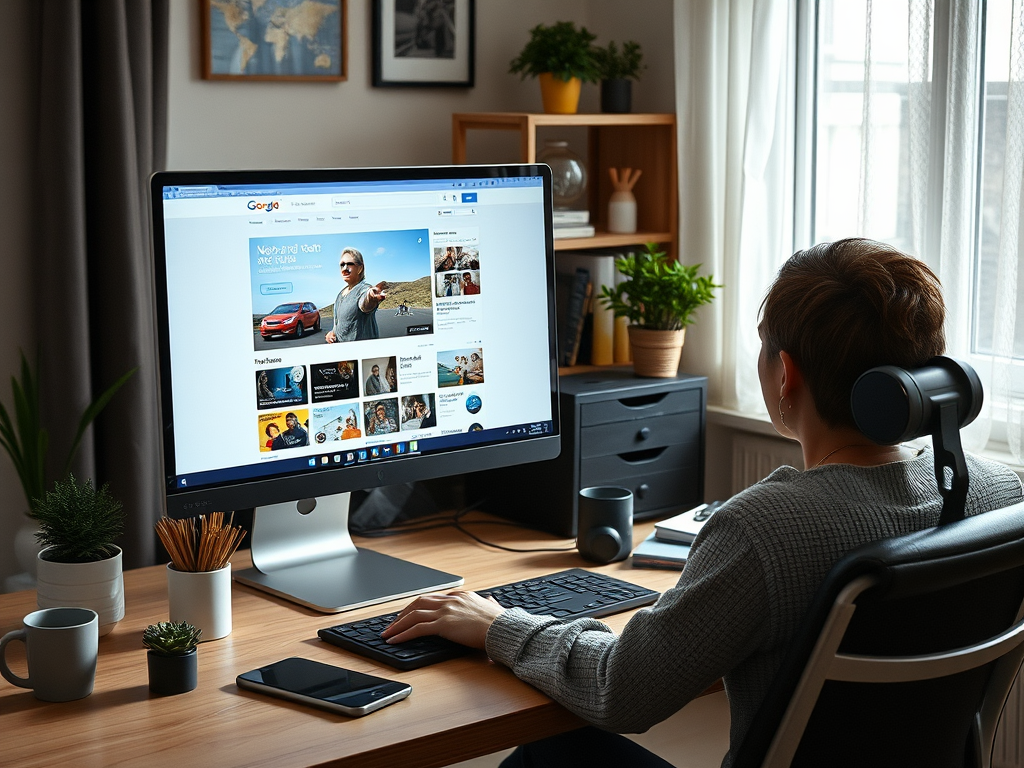Managing PPC Campaigns on a Limited Budget

In the rapidly evolving world of online marketing, pay-per-click (PPC) advertising remains one of the most effective ways for businesses to drive targeted traffic to their websites. However, for many small businesses and startups, the challenge lies in managing these campaigns within a limited budget. The stakes are high, and every dollar spent must yield the best possible return on investment (ROI). This article explores actionable strategies for making the most of your PPC efforts, helping you navigate budget constraints while maximizing your campaign’s potential.
By focusing on essentials—from setting clear goals to utilizing the right tools—this guide offers insights that are crucial for anyone looking to make their PPC campaigns successful. Whether you’re an experienced marketer or just starting out, understanding how to allocate your limited resources wisely can lead to significant gains. We will cover vital topics like keyword research, compelling ad copy, and real-time campaign adjustments, all tailored to help you thrive in the competitive landscape of PPC advertising.
Understanding PPC Basics

Pay-per-click (PPC) advertising is an innovative online advertising model that charges advertisers each time a user clicks on their ad. This approach has become essential for businesses looking for quick visibility and immediate results. Regardless of industry, implementing a solid PPC strategy can significantly drive traffic and conversions. However, with great power comes great responsibility; understanding the nuances of managing a PPC budget is crucial for long-term success.
What is PPC?
PPC allows advertisers to appear in highly visible positions on search engines and social media platforms. It operates on a bidding system where businesses set a maximum amount they are willing to pay for clicks on their ads. The better your ad and bid, the more likely you are to appear at the top of the search results. This model is particularly attractive for its flexibility, allowing businesses to customize their campaigns based on performance or budget constraints.
Why Is Budget Management Important?
Effective budget management in PPC ensures that your advertising efforts are sustainable and targeted. Poorly allocated funds can drain resources rapidly without producing desired results. Conversely, strategic budget management allows for prolonged campaigns that drive traffic over time, fostering growth in customer acquisition. Considering this, it is imperative to approach PPC with a clear financial plan to optimize your investment.
Setting Clear Goals

Establishing well-defined goals is the first step in any successful PPC campaign. Specificity is key; vague goals can lead to wasted resources and lack of measurable outcomes. Utilizing the SMART framework—Specific, Measurable, Achievable, Relevant, and Time-bound—provides a structured approach to goal-setting. For example, instead of saying “I want more traffic”, set a goal like “I want to increase website visits by 20% over the next month.” This clarity ensures that every dollar spent is targeted toward achieving a concrete outcome.
| SMART Criteria | Example Goals |
|---|---|
| Specific | Increase sales leads by targeting a specific demographic. |
| Measurable | Achieve a 15% increase in conversion rate. |
| Achievable | Generate 100 clicks per day for the next campaign. |
| Relevant | Attract more local customers to our online store. |
| Time-bound | Launch a new campaign within three weeks. |
Choosing the Right Platforms
Different advertising platforms come with varying costs and audience targeting capabilities. Making informed choices about where to spend your budget is essential for maximizing your PPC strategy. Google Ads, with its broad reach, can be effective for diverse industries. In contrast, social media platforms such as Facebook and Instagram may offer cheaper options to target niche audiences.
When deciding between Google Ads and social media ads, consider the following:
- Target Audience: Understand where your potential customers are most active.
- Ad Format: Each platform offers different ad formats, impacting your message delivery.
- Cost Structure: Evaluate which platform provides the best cost-per-click (CPC) for your specific goals.
Keyword Research on a Budget
Keywords serve as the backbone of PPC campaigns. Conducting thorough keyword research will empower you to spend your budget more effectively by targeting terms that can generate better traffic. By focusing on long-tail keywords—phrases that are longer and more specific—you can often achieve lower costs while attracting a more relevant audience. Being strategic about your choice of keywords makes all the difference in optimizing your ROI.
Fortunately, several free tools can help you conduct keyword research without straining your budget:
- Google Keyword Planner: Offers insight into keyword ideas and search volume.
- Ubersuggest: Provides keyword suggestions and competitive analysis.
- AnswerThePublic: Visualizes consumer questions related to your niche.
Creating Compelling Ad Copy
Your ad copy plays a crucial role in attracting clicks and driving conversions. Crafting engaging and persuasive text will help ensure your CPC remains low while improving your ad’s quality score. Work on making your headlines catchy and relevant to your target audience. Additionally, incorporating strong calls to action (CTA) can significantly boost engagement rates, compelling visitors to take desired actions.
A/B testing different versions of your ad copy is an excellent way to determine what resonates best with your audience. By running variations in real-time, you can measure CTR and conversion rates effectively. It’s important to test a single variable at a time, allowing for accurate analysis. Regular testing leads to ongoing optimization, allowing you to fine-tune your approach efficiently.
Monitoring and Adjusting Campaigns
Once your campaigns are live, ongoing monitoring and adjustments are necessary for achieving success. Keeping a close eye on performance allows you to identify which ads are performing well and which need modification. Key metrics to track include CTR, cost-per-click (CPC), and conversion rates. By regularly analyzing this data, you can make informed decisions that enhance your bid strategies and overall campaign effectiveness.
Here’s a brief list of essential metrics you should consistently review:
- Click-Through Rate (CTR): Measures the ratio of users who clicked on your ad to those who viewed it.
- Cost-Per-Click (CPC): Calculates how much you are paying for each click on your ad.
- Conversion Rate: Indicates the percentage of visitors who complete a desired action after clicking on an ad.
Conclusion
Successfully managing PPC campaigns on a limited budget is entirely achievable by employing strategic planning and diligent execution. Setting clear goals, choosing the right platforms, conducting comprehensive keyword research, and crafting compelling ad copy are all crucial steps. Additionally, regular monitoring and performance adjustments can ensure your efforts yield substantial returns without overspending.
By adhering to these practices, you can confidently navigate the complexities of PPC advertising, transforming limited resources into a powerful marketing advantage. In this digital age, understanding how to maximize every marketing dollar is what separates thriving brands from those that struggle to find their footing.
Frequently Asked Questions
- What is the average cost of a PPC campaign? The average cost varies widely based on industry, competition, and platform, but businesses often spend anywhere from $1 to $5 per click.
- Can I run PPC campaigns with just $100? Yes, it’s possible to run successful PPC campaigns on a $100 budget; focus on highly targeted keywords and specific geographic regions.
- How can I improve my CTR in PPC campaigns? To improve CTR, ensure your ad copy is engaging, use strong calls to action, and include relevant keywords in the ad title and description.
- Is it worth investing in PPC if I have a limited budget? Yes, with careful planning and execution, PPC can provide valuable leads and customers, making it a worthwhile investment even for limited budgets.